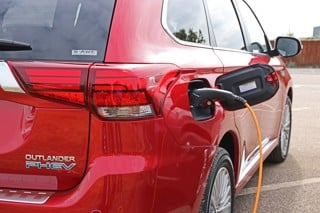The Vehicle Remarketing Association (VRA) is concerned that some of its members could face a “charging crisis”.
The industry body, which represents businesses that handle, sell, inspect, transport or manage more than 1.5 million used cars and vans every year, says the demands for power on some sites will be considerable.
VRA chairman Sam Watkins explained: “We have some members who process tens of thousands of vehicles every month.
“Currently, it is just a question of ensuring that there is sufficient fuel in the tank of each but looking ahead, a large proportion will be EVs, especially following the Government’s 2035 commitment.
“Those remarketing companies will need to make sure that EVs are charged to a useable degree simply to move them around, and comply to best practise for storage scenarios.
“Once an EV has a flat battery, the movement of it becomes a challenge as they must be handled in line with correct safety protocols which differ from internal combustion engines.
“Really, the only way at present to ensure that they will all have sufficient power is to install a lot of chargers - perhaps hundreds on some large sites that are used for storage by manufacturers and leasing companies.”
Watkins believes that this could potentially place huge demands on local electricity supplies.
“We already know of major remarketing operations whose plans for new sites have been dictated, at least in part, by the availability of power infrastructure that is capable of the necessary charging capacity,” she said.
The issue did not affect just large remarketing companies but also individual dealerships, many of whom were already operating from cramped sites.
Watkins continued: “If you are selling and servicing large numbers of EVs, then charging again becomes a concern and it is not inconceivable that even a medium-sized dealership might need a dozen chargers on-site until new charging solutions are evolved.
“We are looking at a situation where the remarketing of EVs might require careful consideration by many different kinds of business in our sector purely to ensure that sufficient charging is available.
“In saying this, we are aware that the charging picture changes all the time and that new solutions are being introduced to the market. As things stand, however, there is certainly potential for what you might call a charging crisis.”
The charger issue was raised at the VRA’s January meeting, which took place at Bruntingthorpe in Leicestershire and was attended by more than 40 members.
Watkins said: “This was just one of the emerging issues discussed at the meeting and illustrates how the VRA is an essential resource for remarketing businesses who want to find out how other businesses are tackling new problems and new opportunities.”























Steve - 12/02/2020 15:53
This is unlikely to be a problem. Being mostly stationary, each car can use a very low power charger "trickle-charge-plus". Yes, one or two higher power chargers will be needed, but the bulk sitting for days can get away with only 1 or 2 kW. Will need lots of chargers though, and ideally keep the vehicles indoors (heated) or on connection during a hard winter. Batteries are damaged by cold. This is a concern for second-hand car dealers too. On LinkedIn if anyone has more Q's, search for 8509a817 and EV.